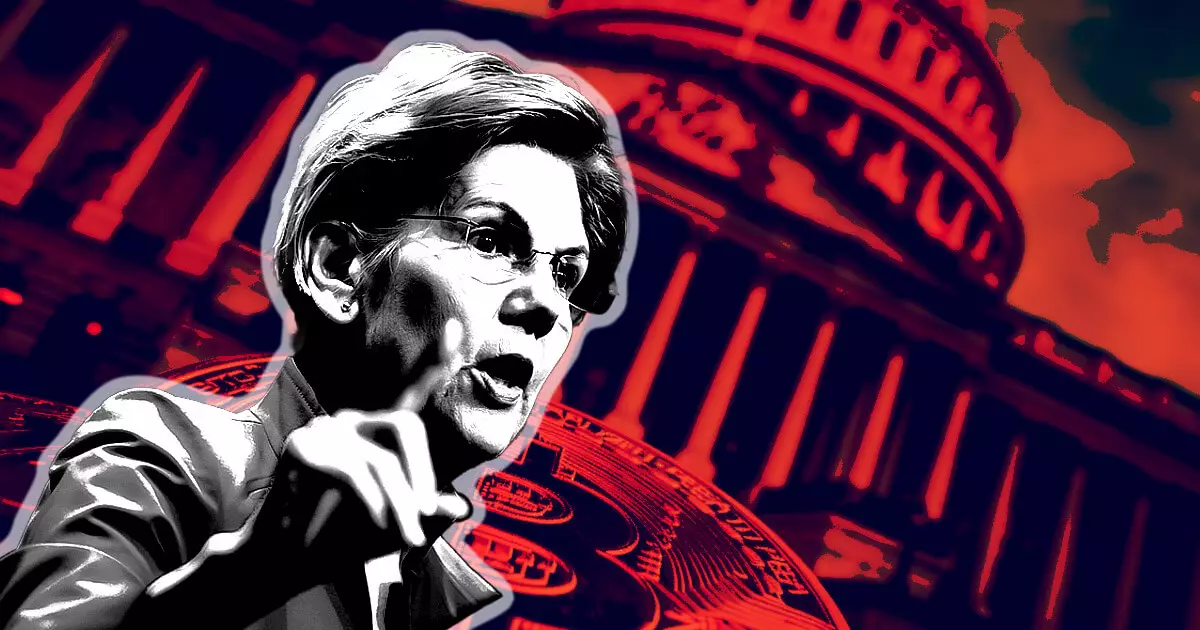In the rapidly evolving world of digital finance, big tech companies and cryptocurrency giants like Binance have found a way to navigate the complex web of regulations with alarming ease, often exploiting regulatory gaps rather than genuinely complying. The recent congressional scrutiny, spearheaded by Senator Elizabeth Warren, reveals a concerning pattern: authorities are more interested in damage control than in enforcing meaningful oversight. While Binance’s hefty $4.3 billion settlement was heralded as a victory against illicit activities, it is, in reality, a transparent charade designed to placate public outrage rather than address systemic issues. The failure of federal prosecutors to assert real accountability—highlighted by repeated evasions about Binance’s true compliance—exposes the superficiality of current regulatory measures.
Regulatory Weaknesses and the Myth of Enforcement
The ongoing debate surrounding Binance’s compliance raises serious questions about the efficacy of large-scale settlements as deterrents. Despite paying significant penalties, the platform’s continued obligations appear to be a mere formality, easily sidestepped by behind-the-scenes practices. The removal of the court-appointed compliance monitor? An unmistakable signal that regulators are more interested in appearances than substance. This selective enforcement diminishes trust in the very institutions tasked with safeguarding financial integrity. It’s not merely a failure of Binance; it’s an indictment of the regulatory approach that incentivizes compliance optics over actual reform. Such a mindset encourages major corporations to treat penalties as a cost of doing business rather than a serious deterrent against malfeasance.
Political Hypocrisy and the Evasion of Responsibility
Senator Warren’s demand for transparency about Binance’s connections to political figures underscores an inconvenient truth: the relationship between big corporations and government officials is often more intertwined than publicly acknowledged. The focus on Binance’s links to the Trump administration’s officials and entities like World Liberty Financial suggests a broader pattern of regulatory capture, where powerful entities exert influence to sway oversight in their favor. The criminal charges and the subsequent plea deal involving Binance founder Changpeng Zhao demonstrate that regulatory efforts are often reactive rather than proactive. The fact that Zhao received a prison sentence but remains a free man now, seeking presidential pardon, exemplifies the inconsistent application of justice. This selective justice damages the credibility of regulatory agencies and feeds into public skepticism about the fairness of the entire system.
The Political and Economic Consequences of Weak Oversight
The broader implications of regulatory failure extend beyond Binance and cryptocurrency markets. It signals to the financial world that illicit activities, whether money laundering or sanctions violations, can proceed unchecked if the targeted firm has enough political and economic influence. The Biden administration’s recent moves, along with legislation like the GENIUS Act, are superficial attempts to strengthen oversight but are hampered by entrenched interests and bureaucratic inertia. The truth remains: until regulators, lawmakers, and law enforcement are willing to confront and dismantle the cozy relationship with big tech, true reform will remain elusive. Cryptocurrency firms will continue to be a playground for illicit actors, with regulatory hypocrisy shielding them from real accountability.
In outrage and concern, the current approach resembles a façade—an elaborate dance of compliance pretending to be control, reinforcing the dangerous illusion that the system can police itself while powerful entities manipulate the rules to their advantage. Only a posturing regulator and a complacent political class stand between the financial system and a potential upheaval caused by unchecked criminality. Until genuine enforcement takes precedence over political expediency, the illusion of safety and legality remains just that—an illusion.

